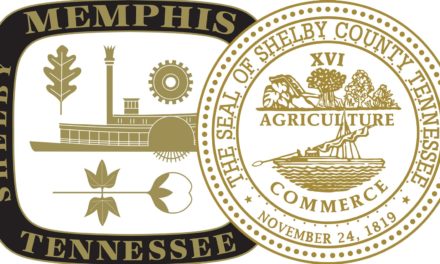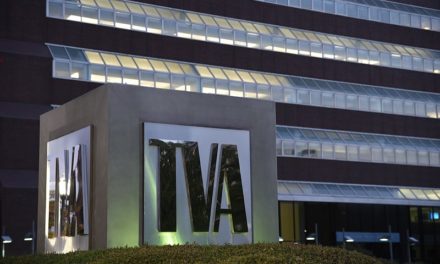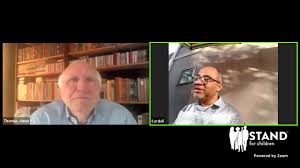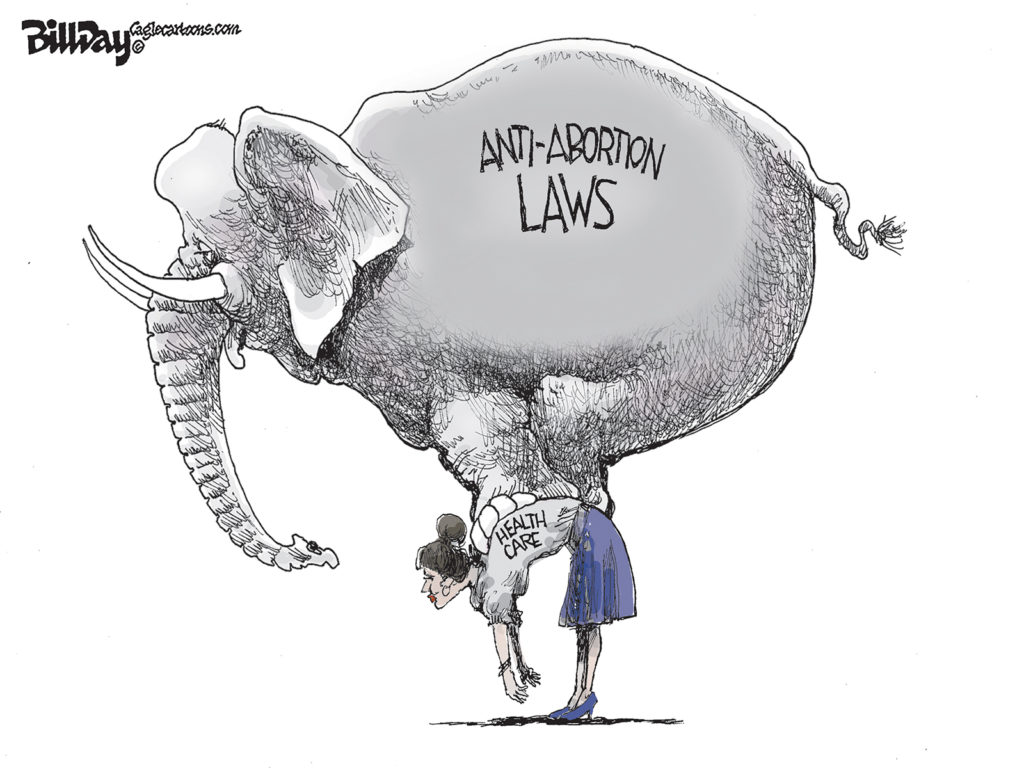In politics, as in homicide investigations, it’s reasonable to be wary of things that are supposed to be coincidences.
That’s why it was strange to some that in the space of a few days and in the wake of Bass Pro Shops indicating an interest in a reimagined Mud Island, two negative news stories suddenly appeared in what appeared to some people feel as an attempt to tarnish the retailer’s image as a potential suitor for the Mud Island project.
The head of the Riverfront Development Corporation on Wednesday suggested that Bass Pro Shops has no positive impact on downtown and then two days later two former City Councilmen on Friday professed surprise at parking garage provisions in the contract with the outdoor retailer.
It opened up again the rich vein of misinformation that regularly accompanies all things Bass Pro store, and in the cases of the former Council members, it suggests intentional obfuscation, but more on that later.
Early Concerns
Here’ the thing: We were not hidebound supporters for redeveloping The Pyramid. In fact, the first post on this blog on June 1, 2005, was about shifting from rethinking the use of the building to the use of the land. As a result, we floated the idea that The Pyramid should be razed as a way to rethink the land from the north end of the cobblestones all the way to Auction as a one great urban space.
As it became clear that the momentum was behind redevelopment, we wrote cautionary tales from other cities, specifically Buffalo, New York. Like Memphis, Buffalo had a grand plan to redevelop a former public building – there, it was a 150,000 square foot auditorium – and when this didn’t pan out, the idea shifted to Bass Pro becoming the anchor for a massive waterfront development.
Bass Pro Shops was chased by city officials, downtown development officials, and even Governor George Pataki, and after almost a decade of agonizing fits and starts, the huge store promised for downtown Buffalo was built, but in a Western New York suburb of Rochester rather than the city that had courted it for so many years.
Besides the Buffalo experience, we were also chastened by the fact that only a select few cities had ever repurposed a major arena into a revenue-producing use, and that too led us to think that the focus should be on repurposing the land, not the building.
The Worst-Kept Secret
Put simply, we had a deep skepticism about the redevelopment project which was allayed by the involvement of Scott Ledbetter, a leader of Memphis business but a conscientious and serious civic leader (he was once chairman of the board of the Memphis Zoo and it’s hard to imagine the present controversy about greensward parking if he was still in that position).
At the helm of a committee that reviewed several dozen proposed uses for the Pyramid, including an aquarium, a world trade center, a church, casino, hotel, a science and technology center, African American Trade and Cultural Center, indoor theme park, and federal government offices, Mr. Ledbetter said in July, 2005, that “destination retail” would be the highest and best use for The Pyramid. Ultimately, his committee decided that the most successful, best capitalized retailer for the former arena was Bass Pro Shops.
In February, 2006, the company submitted a nonbinding letter of intent, and in June, 2010, a 55-year lease was signed to turn the Pyramid, which had been essentially empty for six years, into a destination megastore.
While former City Councilmen Harold Collins and Lee Harris told The Commercial Appeal last week that they did not know about any commitment for a parking garage, implying that it was kept secret from them. However, in 2010, copies of the agreement were given to every Council member, the parking garage was included on Powerpoint presentations to City Council, it was reported in the news media at the time, and it was even posted on the city government website.
It makes Mr. Collins and Mr. Harris’ suggestion of being kept in the dark about the agreement strange, to say the least. In fact, City of Memphis has been held up as a model of transparency by media in other cities where public bodies have refused to release contracts with Bass Pro Shops on the grounds that they include proprietary information. Here, former Memphis Mayor A C Wharton Jr. ordered for the contract to be posted to the city website, and based on a quick search, we are unable to find another city that has done this.
We Should Be So Lucky
Councilman Berlin Boyd, who wasn’t even on the Council at the time and replaced Mr. Harris, however, did have the facts about the agreement, pointing out that the garage would only be built if business demanded it and that its cost would be covered by the Tourism Development Zone, a funding source that belies the newspaper headline that “City on hook to build Bass Pro garage.”
As reported in 2010, if Bass Pro’s square footage in The Pyramid exceeds 300,000 square feet, it can ask for construction of a parking garage. As Mr. Boyd pointed out, it would be a good problem to have because it will mean that Bass Pro Shops is highly successful.
Meanwhile, Bass Pro Shops spokesperson said existing parking is “adequate” and that no requests for a garage have been made. “We continue to see ourselves as long-term partners with City of Memphis and feel very proud of our relationship and the initial success of the project,” he said. That success includes more than two million visitors/shoppers in seven months, euphoric coverage in USA Today calling it “a Vegas-style architectural fantasy” and “an ode to the nearby Mississippi River delta,” and Forbes recently named the hotel in The Pyramid as one of the 10 best hotels in the world for 2015 and “the most memorable hotel opening of the year.”
In the end, two things shaped our opinions about Bass Pro shops – 1) we stayed at Big Cedar Lodge, its four and half star resort in the Ozarks, and were impressed the attention to detail, the quality of activities, and commitment to supporting Ozark artisans who designed and constructed so many of the resort’s fixtures, and 2) the funding source for the Pyramid redevelopment, Tourism Development Zone, meant that Memphis taxpayers would not have to pay the costs from city budgets.
Paying Its Own Bond Debt
That said, even at this point, and after dozens of presentations to City Council and even more articles in the news media, there is widespread misunderstanding about the financing arrangement for The Pyramid. Put simply, the bond debt payments for the Pyramid are being paid from the incremental increases in sales taxes generated by Bass Pro Shops itself. In other words, the store is self-funding because it creates enough sales taxes to pay for its bonds – and with enough left over to pay for a garage or redevelop the Pinch District, or both.
But it’s not as simple as saying that all of the sales taxes collected on sales within The Pyramid are part of the TDZ. Actually, there are sales taxes collected there that are going into city government coffers.
That’s because of the way the increment is calculated. At the time that the State Building Commission approved The Pyramid as a TDZ project, a pre-construction baseline was set for sales taxes within the zone. Each year, the baseline is increased by the percentage of sales tax growth countywide. For example, if sales taxes in Shelby County increase five percent, the baseline is increased five percent.
It is the amount over five percent that is dedicated to the TDZ, which is making the bond payments for the $215 million bond issue that included Pyramid improvements, purchase and “greening” of Lone Star concrete company site, and buying out the county’s half of the Memphis Cook Convention Center. The amount spent on the Pyramid totaled about $87 million, but around $57 million was for costs that would have been incurred to prepare the non-seismic building for any tenant, with the majority of that amount spent for below ground and above ground seismic improvements. The remaining $30 million was provided to Bass Pro Shops for “landlord improvements,” and annual rent payments are projected to repay this amount in 15 years or less.
It’s On Us
More concerning to us than the kerfuffle about a parking garage were comments by the Riverfront Development Corporation that Bass Pro Shops customers were not doing anything else in Memphis. The company has said that the average customer drives from 50 miles and spends two to two and half ours in the store, and while we’re unaware of any research into its Memphis customers, the RDC described its customers as “transient” who don’t have time to do anything else in Memphis. (In August, the RDC said an uptick in Mud Island visitors probably was caused by Bass Pro Shops.)
The comments sound like they are anecdotal, but true or not, it seems clear from his comments that we need to step up our tourism marketing to Bass Pro Shops’ customers. That would especially seem to be a priority for the RDC which desperately needs more people at Beale Street Landing and more customers in its restaurant.
We appreciate his call to arms, which makes the case that we can’t be so cavalier about the more than two million people going to Bass Pro Shops every year that we don’t figure out how to maximize their presence. The headline on a column by Ted Evanoff of The Commercial Appeal said it all: “Memphis needs to capitalize on Bass Pro tourists.”
**
Join us at the Smart City Memphis Facebook page for daily articles, reports, and commentaries that are relevant to Memphis.







His last name is Boyd,not Berlin
Hopefully some of the proposals to redevelop MIRP include ideas for connecting BPS to MIRP. Bringing back the east facing pedestrian entry way would be a good start for encouraging BPS patrons to visit the Pinch district (once something is built there that is worth visiting).
As for why BPS patrons don’t spill over to MIRP…there’s really nothing to visit after you see the Riverwalk.
BPS patrons will buy their stuff, eat at the BPS restaurants and go back to places where they can use their merchandise. Build something nearby where they can demo their newly bought treasures and they just may stick around little longer. Look at the synergy between Branson BPS and Table Rock Lake. We may not have a gigantic lake but clearly some type of recreational options might appeal to BPS patrons and Memphians alike.
Cleaning up the Harbor and making it a recreational option might be a good start. Or here’s wild idea: cut off the upper harbor, clean it up and make it a lake. That won’t bring more customers to MIRP but it will give BPS customers and Memphians another recreational option and cause to stick around a little longer.
Mainly I am just very grateful that we have lots of BPS customers coming to the Pyramid despite us not having a major feature like Table Rock.
I hope the RDC will help our City further capitalize on the current success of the BPS.
Great points, Aaron. Thanks for them.
Seems clear that Bass Pro Shop will never fulfill all the hype and grand promises surrounding it. BP is just another retail business with little interest in our city and community. To BP nothing else except maximizing profit from their stores. I’d be willing to bet that only a small percentage of BP customers ever go elsewhere in Memphis. Most BP customers are rural or suburban dwellers who have very little interest in the attractions of the city and who are mostly scared off by all the negative press Memphis gets from crime. Yes, if Memphis wants to capitalize on BP, the mayor needs to work harder to reduce the pall of crime and urban blight and develop tourism attractions that are worthy of promoting. And we can be sure that Bass Pro will demand the building of that parking garage that few in city govt even knew we had contracted to build for them. So typical of Memphis and our not so bright Pubkic officials. One just has to cringe and cry again!
To the point of our blog post, everyone in city government knew about the parking garage except the political opportunists. And besides Councilman Boyd, there was at least one other councilman that confirmed it but who wasn’t quoted in the story. And from our point of view, city officials deserve credit for developing a funding arrangement that means that even if the garage is built, it won’t by paid by city taxpayers. And if it’s not built, the money just goes to Nashville to be spend in other places, so it’s all a tempest in a teapot at most.
As for BPS being just another retail store, we suspect any other one in Memphis would be glad to have two million visitors. And all projections about its revenues are being surpassed to the point that the surplus TDZ revenues can be used to redevelop the Pinch District.
We walked next door to CVB this morning and they tell us that it’s their opinion that these customers are visiting other attractions and improving hotel occupancy rates. But again, there are a lot of opinions and few facts.
I have to agree that all the redneck bubbas going into the Bass Pro Shop surely won’t spend much money in downtown. The clubs and bars on Beale aren’t likely to have much appeal. They just park their trucks in the city funded parking garage and head back to Arkansas. I still cringe every time I see the BP pyramid.
Anon 8:35. What parking garage? BP is a lot of fun and a great place to visit and take the family. You should give it a try.
I was a skeptic too but have come to appreciate having such a great store located so close to our Midtown home. Especially since my two sons and myself have discovered the joy of fishing together this past year.
Anonymous: As we’ve written before, it’s not about rednecks but greenbacks. And if the history of Memphis is anything, it is our debt to the region since so many of our musicians, business leaders, etc., came from these so-called redneck areas. And it’s not a city-funded garage – which was one of the points of this post. Sigh.
Why bother even reading the main post when anonymous is just going to substitute disinformation for facts?
Let’s add this idea to the mix:
Visitor numbers are greatly outpacing projections which is amazing considering those numbers seemed inflated at the time. I personally am holding on formulating an opinion for at least one additional calendar year. This will provide the time for the “new” of the spectacle to settle and steady, monthly visitor numbers and spending trends can be established. I would hardly be surprised if a significant number of visitors over the first 3-6 months of the opening of the store were from within the metropolitan area. Being local in nature, I would also understand how many of these locals would not be as inclined to spend additional time as tourists downtown. There is no doubt that more than a few suburban eyes were likely amazed at the reality of downtown’s redevelopment compared to preconceived notions, thus Bass Pro might enhance the future prospect of some of these individuals to come downtown on a more frequent basis. True impact will be felt as the store is established as a more regional destination. Visitors from outside the metropolitan area will be more likely to translate into additional time and money spent downtown.
That being said, the city must be far more aggressive in marketing area tourist attractions and their proximity to the store. That destinations such as Beale, Sun Studios, the Cobblestones (and more importantly the tours on the river that are offered), AutoZone Park and the Cotton Museum among others are within a mile and half must be clearly communicated. As important are the physical links to these locations. The connections between the Pyramid and the Riverwalk/Harbor Trail must be strengthened and must be elevated to the highest level in the access hierarchy. It is incredible that a pedestrian connection has yet to be resurrected between the building and the Pinch. Permission to grant demolition of the original spans was shortsighted to say the least. This connection must be re-established at once. Even a single car trolley service running from the Pyramid to Beale Street (including the station at Union) would be an incredible enhancement. Considering the distance involved, travel times could probably be reduced to allow for a 15 minute (or less) round trip. In conjunction with said trolley service, implement the plan to provide a water taxi from Beale Street landing to Mud Island. Extend said service to the existing public access boat ramp at Auction Avenue thus providing a service from the Pyramid to Beale Street and back to the Pyramid. We would then have an easy to navigate tourist loop connecting Bass Pro, the state’s top tourist destination, and Mud Island with the easy option of returning to the Pyramid.
Great thoughts Urbanut.
The irony here is that the current infrastructure (and lack thereof) around the Pyramid has made the superstore easily accessible to and from one thing…the interstates. As stated above, there is not easily identifiable access to the Riverwalk, Beale Street Landing, Mud Island, Pinch, etc. There’s no easy access to public transit (trolleys or otherwise) to the heart of downtown.
And maybe that’s by design. No doubt, customers who park large SUVs and minivans on the parking lots are probably going to buy more fishing rods and big bags of clothing to load in their vehicles than those who arrive from and return to downtown on trolleys, shuttles, or on foot.
But if these are really people who are coming to BPS and nothing else in the city, then a huge opportunity for cross-marketing would seem to exist. It shouldn’t take a high-priced demographic consultant to tell us that most BPS customers have disposable income, love the outdoors, have kids or grandkids, are sports fans, go to concerts, buy expensive trucks and SUVs, eat barbeque, etc. Memphis has a lot to offer these folks: childrens’ attractions, a world-class zoo and fine parks, professional sports, concerts of all stripes, retail, restaurants, and so on.
Bass Pro cannot force its customers to visit Beale Street Landing. It is incumbent upon Beale Street Landing, the RDC, and any other aggrieved party to provide enhanced access to BPS customers and attractions that appealing and understood by them.